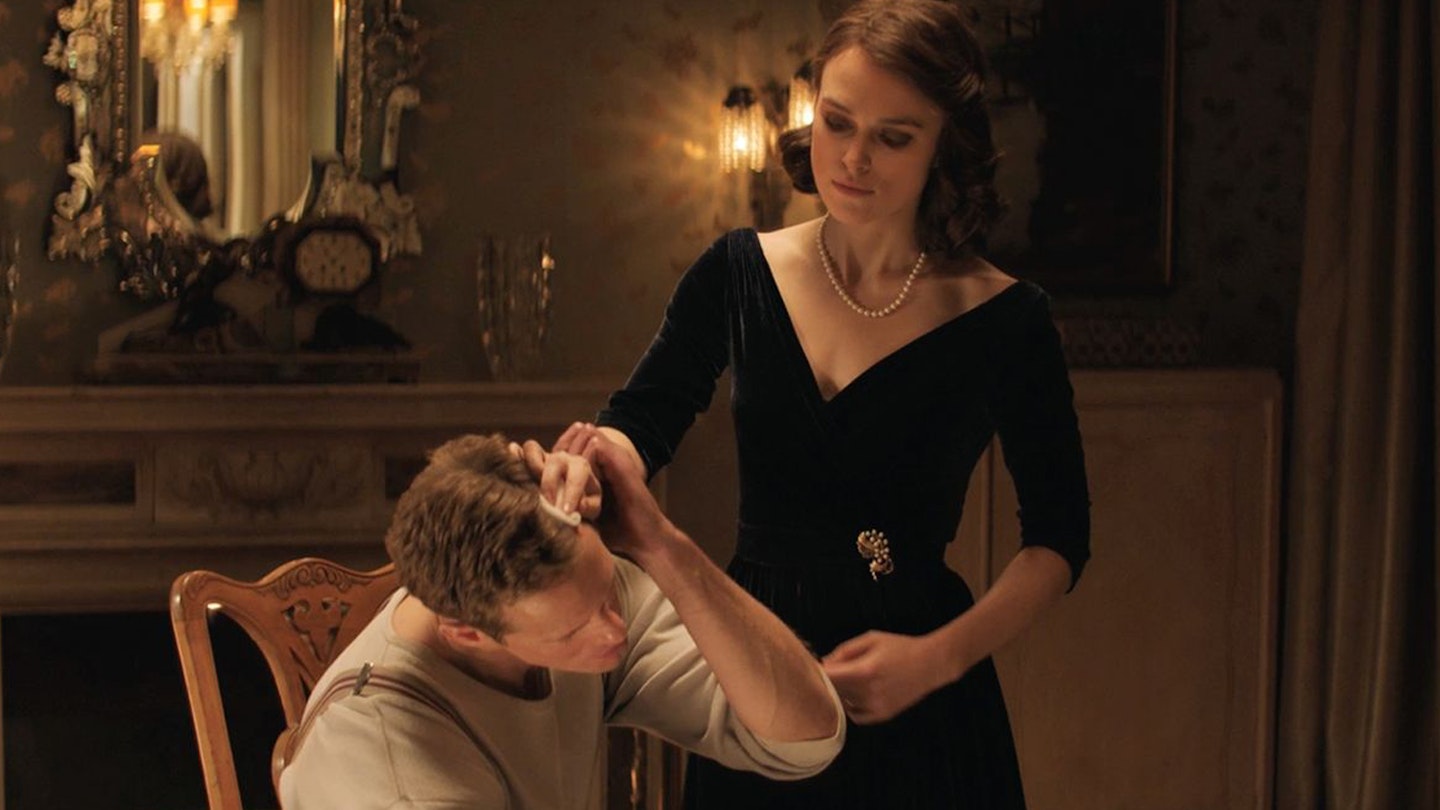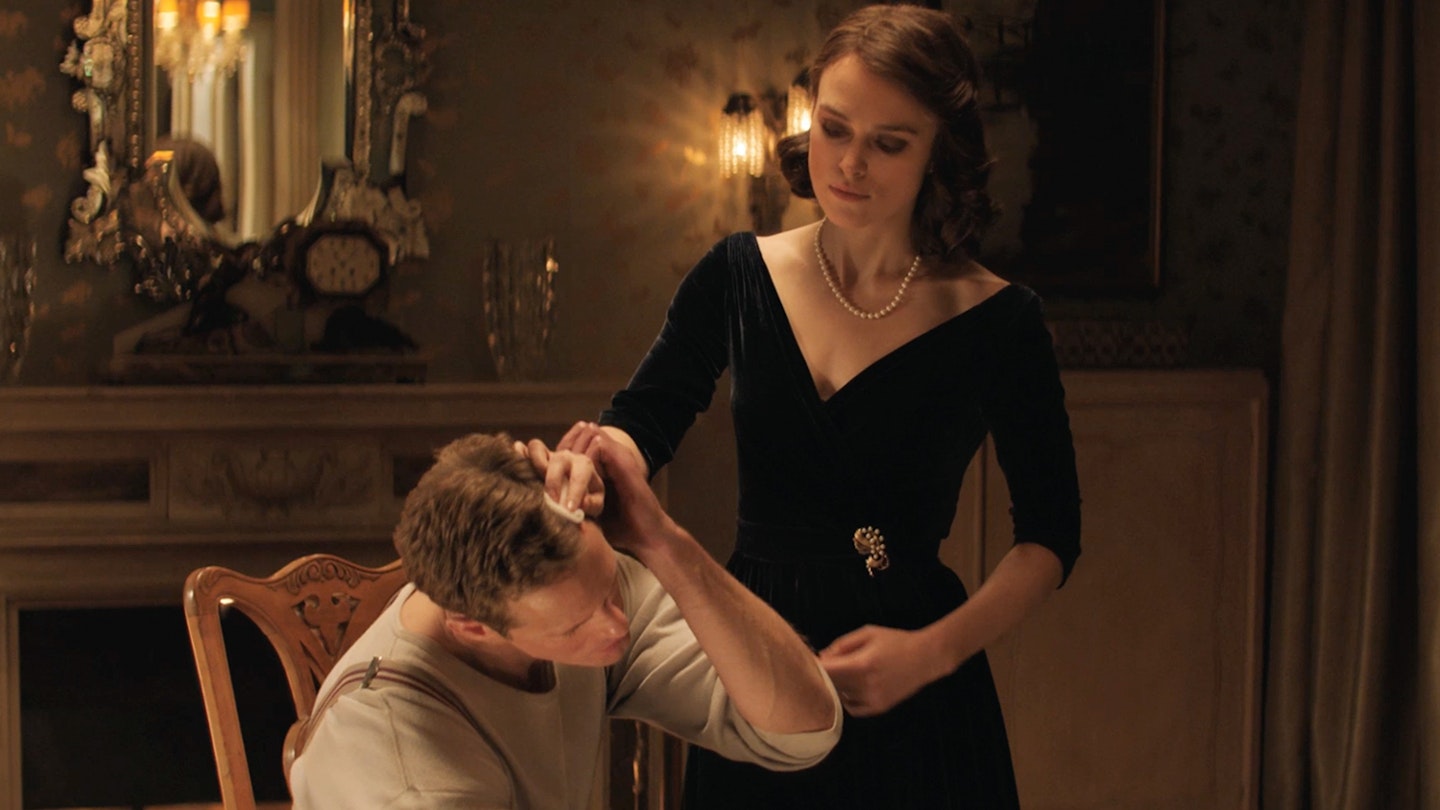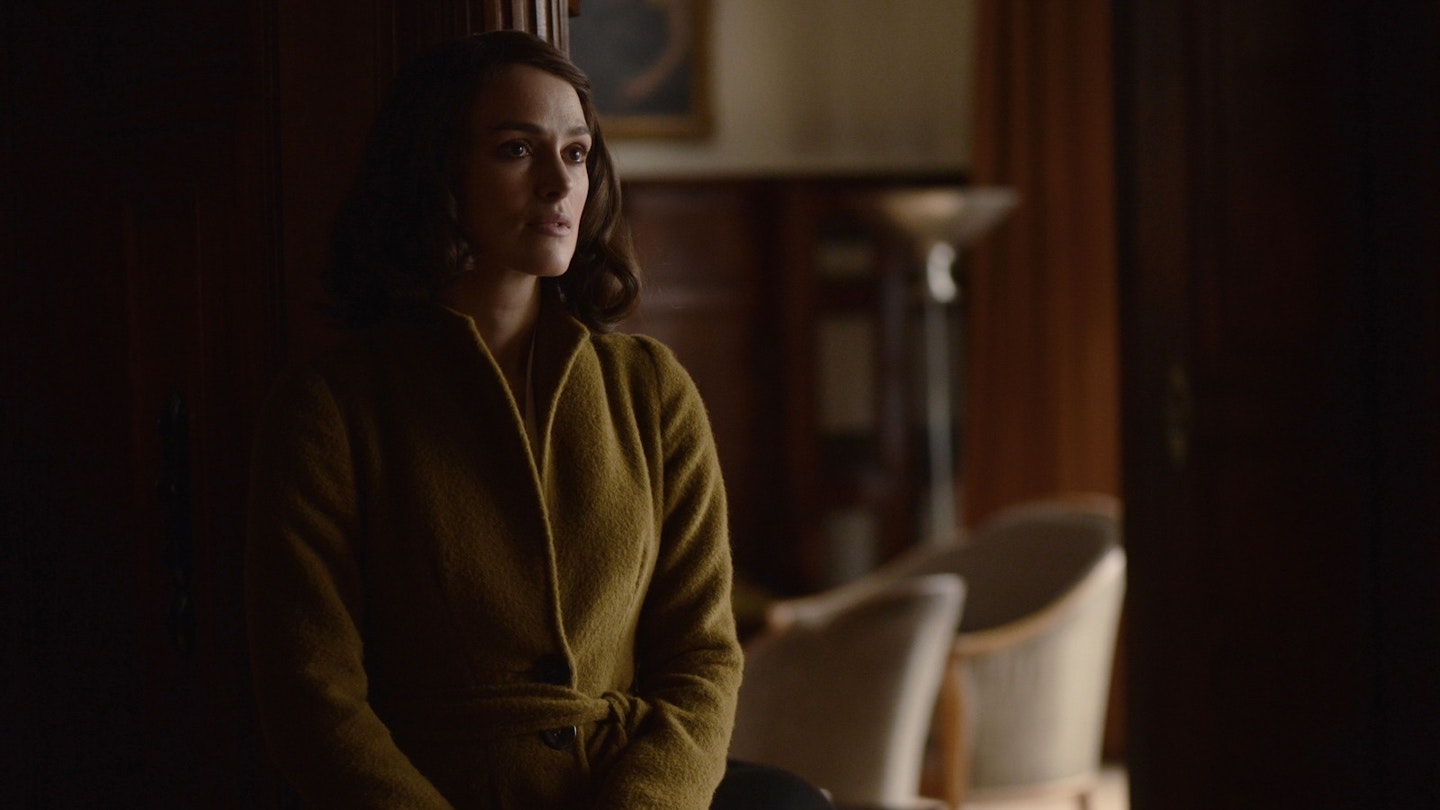“National treasure” status is usually applied retroactively, around an actor’s 55th birthday or so. But it’s time to grant the title to Keira Knightley, who has become one of the most consistently interesting stars this country can claim. In just a few months she has surprised as a Sugar Plum Fairy and dazzled as Colette. Now she gives depth and thoughtfulness to a romantic drama that might have been wearily saccharine.
The setting, at least, feels fresh. Instead of clichés about people having romantic problems during wartime, we join this story after World War II has ended. The gentlemanly, optimistic Colonel Lewis Morgan (Clarke) is charged with the reconstruction of a devastated German city and the de-Nazification of its citizens, a fraught process given the Nazis infiltrated every corner of their own country. Lewis’ wife, Rachael (Knightley), arrives in this paranoid environment nursing her grief for their late son, and the two struggle to reconnect despite small gestures of affection on both sides.
Director James Kent enlivens what could be just another love triangle.
Rachael is further discomfited to learn that Lewis has allowed their home’s owner to stay on despite the confiscation order. But Lewis, often away for work, seems not to have noticed that his tenant looks like Alexander Skarsgård, and a strange tension grows between the unhappy Rachael and his Stefan. They’re the two most beautiful people in the film, so some sort of romantic entanglement seems inevitable. When it comes, it’s as sudden and intense as a storm, and about as resistible.
Based on the book by Rhidian Brook, this adaptation has been streamlined — a member of the Morgan family has been excised entirely — and some of the political paranoia has faded. But there’s enough left to inform the romance, as Rachael wonders if she can trust the promise of a new and less haunted love. Stefan, meanwhile, is struggling to prove his innocence in the Nazi atrocities while his daughter, Freda (Thiemann), chafes against these invaders. Director James Kent previously took a slightly unconventional approach to a World War I tragedy in Testament Of Youth, and finds similar fresh angles here to enliven what could be just another love triangle.
It’s an unhappy group, living under grey skies heavy with snow. Beautifully detailed production and costume design help to enliven the picture, however, with Stefan’s modernist house contrasted against rubble-filled streets and his rough work wear against Rachael’s glorious gold evening dress (a contender, with Knightley’s green Atonement number, for Best Dress Ever Filmed). But the romantic sparks provide fire to warm you despite the gloom. These characters are stuck in the messy aftermath of a tragedy — a series of tragedies — not of their making, and they try to find happiness regardless. There’s something noble in that even when it leads to ignoble behaviour.





